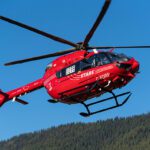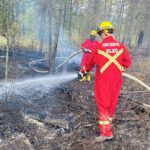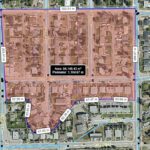Home »
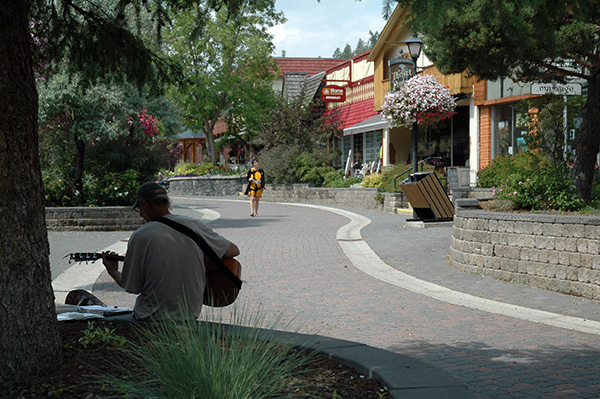
RMI funds for regional tourism hubs
Four East Kootenay municipalities are getting $702,716 to put toward tourism, the Government of British Columbia announced today.
In total, the province is providing $10.5 million under the Resort Municipality Initiative (RMI) to 14 designated communities to support programs or projects which add amenities, provide a better tourism experience for visitors and help to increase the tourism component of the local economy.
The four East Kootenay communities are Fernie, Invermere, Kimberley and Radium Hot Springs, while nearby Golden, Rossland and Revelstoke are also among the 14 communities.
The City of Kimberley is receiving $61,955 to support local tourism.
Kimberley has received $682,342 since qualifying for funding in 2007, and will use the most recent installment for planned activities including mountain bike trails and a winter ski shuttle.
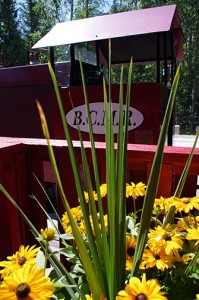 Kimberley has focused its RMI spending on enhancing its year round nature-based tourism products and supporting its vibrant arts and culture scene. With improvements to the Sullivan Mine Interpretive Train Tracks, the ski village and downtown areas are now connected through a direct rail access line. Development of new bike trails and a skills area have diversified the tourism offerings in the community year-round.
Kimberley has focused its RMI spending on enhancing its year round nature-based tourism products and supporting its vibrant arts and culture scene. With improvements to the Sullivan Mine Interpretive Train Tracks, the ski village and downtown areas are now connected through a direct rail access line. Development of new bike trails and a skills area have diversified the tourism offerings in the community year-round.
“As a member of the Resort Municipality Initiative (RMI), the City of Kimberley is pleased to have the support of the Province in expanding our impressive tourism attractions. The local advisory committee prioritized the use of this year’s RMI funds towards the creation of a trails/skills park for mountain biking enthusiasts and a winter ski shuttle. We hope the improved services will attract more mountain bikers and skiers to support Kimberley’s tourist economy,” said Mayor Ron McRae.
The District of Invermere is receiving $212,515 in RMI funding.
Invermere has received $1,396,667 since qualifying for funding in 2009 and will use the most recent instalment for planned activities including beach improvements, enhancing public gathering spaces, and improving directional/interpretational signage.
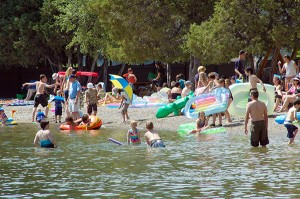 Invermere has focused its RMI spending on growing its year-round tourism economy and creating a more diversified local economy with greater employment opportunities. In 2012, work was completed to ensure that Kinsmen Beach remains a welcoming and active centre within the heart of Invermere. The investment in the new amenity building at
Invermere has focused its RMI spending on growing its year-round tourism economy and creating a more diversified local economy with greater employment opportunities. In 2012, work was completed to ensure that Kinsmen Beach remains a welcoming and active centre within the heart of Invermere. The investment in the new amenity building at
Kinsmen Beach has begun attracting new events and expanding existing ones. Invermere has also promoted alternative transportation options and lower greenhouse gas emissions through introduction of a mountain-valley shuttle service and improved cycling options.
“The RMI is crucial for small communities like the District of Invermere. We’re able to construct public spaces and improve services like our Mountain to Valley shuttle, which links skiers with our nearby ski resort, Panorama Mountain Village. These investments help us grow. We plan to use the most recent funds to enhance our downtown core and create a public gathering and performance space. We’re improving tourism year-round in Invermere,” remarked Gerry Taft, Invermere Mayor.
The Village of Radium Hot Springs is receiving $78,447 to support local tourism.
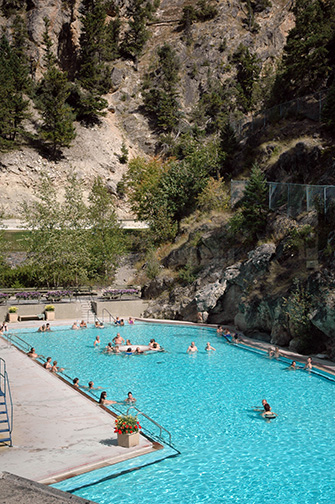 Radium Hot Springs has received $965,035 since qualifying for funding in 2007 and will use the most recent installment for planned activities including the Adventure Radium youth camp, hot pool connector paths, events and festivals and downtown beautification.
Radium Hot Springs has received $965,035 since qualifying for funding in 2007 and will use the most recent installment for planned activities including the Adventure Radium youth camp, hot pool connector paths, events and festivals and downtown beautification.
Radium Hot Springs has used RMI funds to bolster its reputation as a destination for travellers from Alberta while also broadening their potential visitor base through marketing to tourists from farther away, including the US, Asia-Pacific and Europe. The village has improved amenities, such as lighting and implemented beautification strategies, to promote walking and encourage visitors to spend more time exploring.
Village Mayor Dee Conklin stated, “As a resort municipality, the Village of Radium Hot Springs is responsible for providing infrastructure and services that far exceed the needs of our base population. The Resort Municipality Initiative program has become an important financial tool for the development of new amenities and services that support our tourism economy.”
See separate story for Fernie’s allotment
Other municipalities participating in the RMI program are Harrison Hot Springs, Osoyoos, Sun Peaks, Tofino, Ucluelet, Valemount and Whistler.
RMI supports the BC Jobs Plan and Gaining the Edge: BC’s Tourism Strategy by helping resort-based municipalities address the unique challenges they face as seasonally dependent economies to grow their tourism offerings.
“We want to see our resort communities thriving. The Resort Municipality Initiative is designed to help improve and strengthen the economies of these tourism hot spots. It also means more jobs and ensuring visitors return to the communities for years to come,” stated Shirley Bond, Minister of Jobs, Tourism and Skills Training and Minister Responsible for Labour.
“Tourism is a key economic driver throughout the province. We’re pleased to be able to provide this additional funding. It’s an investment in 14 resort communities to support further growth in tourism,” added Naomi Yamamoto, Minister of State Tourism and Small Business.
B.C.’s tourism sector is one of the eight key sectors identified in the BC Jobs Plan creating more than 125,000 jobs and over $13.5 billion in revenues in the province. Since 2006, over $87.6 million has been invested in tourism infrastructure and programs to support local and regional tourism economies in the 14 communities.
Participating municipalities undertake programs or projects, which will encourage visitors to stay longer and visit more often. Projects range from building pedestrian and mountain biking trails, boat launches, and beach improvements to holding festivals and events.
The RMI program objective is to increase the number of visitors and their length of stay, to broaden resort activities to help expand the length of the tourist season and increase employment, and to diversify the local tax base. Through local stakeholder consultation, each resort municipality develops a five-year plan that sets out the broad direction and desired outcomes to guide their future tourism development and promotion.
Since 2006, through RMI, more than $87.6 million has been invested in tourism infrastructure and programs to support local and regional tourism economies.
Tourism is one of the largest industries in the province. In the last decade, tourism revenue in B.C. increased by 42.9%. B.C. continues to grow its tourism sector throughout the province, in part by using the ‘Gaining the Edge’ tourism strategy. It focuses on developing key tourism products such as touring vacations, city experiences, skiing and snowboarding, Aboriginal tourism, conventions and meetings, as well as outdoor adventure/eco-tourism.
Total tourism wages and salaries were $4.3 billion in 2012, an increase of four per cent since 2011. In 2012, the tourism sector employed 127,300 British Columbians. That is almost one in every 15 jobs in B.C. and an increase of 0.6% from 2011.
e-KNOW

